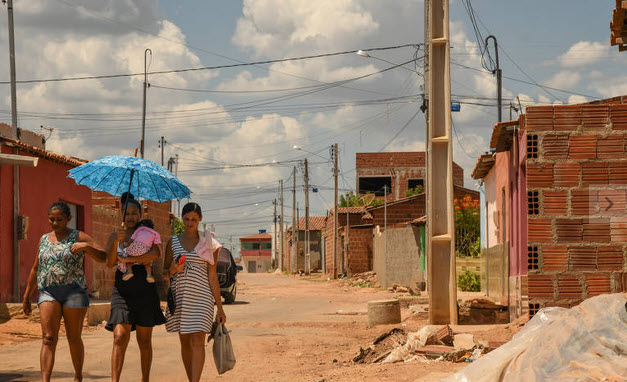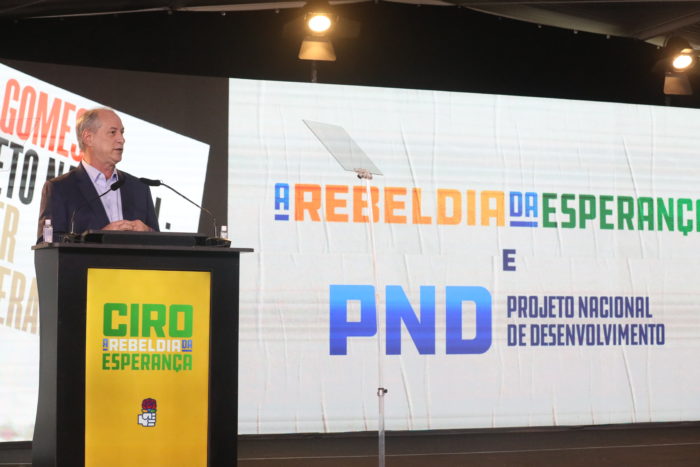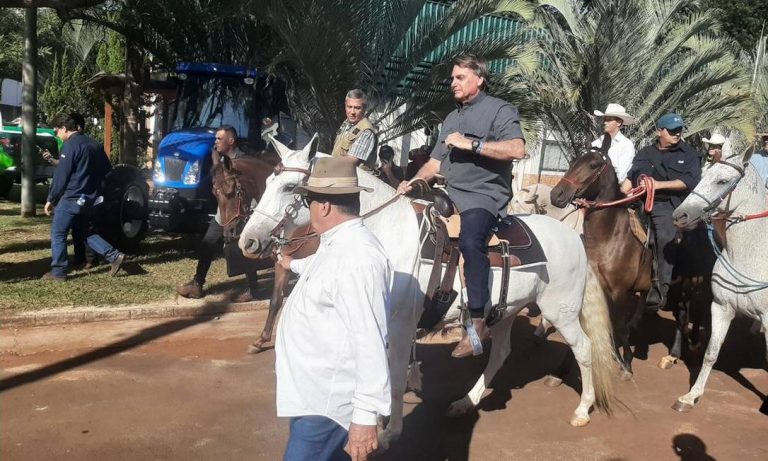Scandals becoming too close for comfort. Education in disarray. Health in tatters. Embarrassing revelations for the Armed Forces. Inflation rising, cost of living exploding, millions unemployed, civil servants on a go-slow for a pay rise. What better than a constitutional crisis to occupy the headlines, blogs, social media, TV and radio news?
Some analysts believe this is why the Brazilian president hastened to announce a graça (pardon) for his faithful supporter, congressman Daniel Silveira, as soon as the Supreme Court, by 10 to 1, voted to find him guilty of threatening physical violence against its ministers (judges) and calling for the return of the military dictatorship. The case had not even formally terminated – Silveira could still appeal on technicalities – when Bolsonaro announced his pardon, justifying it as ‘defending freedom of expression’.
In the view of legal experts, Bolsonaro’s pardon is itself open to challenge, because it was a blatant favour to a friend and political ally. Presidential pardons are normally reserved for prisoners already serving their sentences, not for someone whose trial has not even run its course. By overriding a decision of the Supreme Court, Bolsonaro set up a constitutional crisis between the executive and the judiciary, outcome unknown.
A plague of scandals
The pardon served its purpose in drawing the media’s attention away from the scandals that swirl around Bolsonaro’s self-proclaimed corruption-free government. These scandals are many and varied: Evangelical preachers demanding bribes from local mayors to speed up ministry grants for schools – either cash or gold bars accepted; overpriced robotic kits – purchased from government allies – being supplied to schools that don’t even have drinking water, let alone internet; new crèches and schools abandoned half-built while money remains unspent in ministry accounts; middlemen demanding bribes for untested vaccines for the Ministry of Health; oxygen running out in hospitals while millions are spent on medicines proven to be ineffectual.

The government agency for drought measures in the Northeast, CODEVASF, run by political allies, are building overpriced roads with shoddy material, while the core programme to provide water cisterns is abandoned. The armed forces – already caught buying large quantities of filé mignon, seafood and expensive wines and spirits – have been shown to have bought a mind-boggling 35,000 Viagra pills, at inflated prices.
These revelations, obtained via the freedom of information law introduced by President Dilma Rousseff, show that inside the two ministries with the largest budgets, Health and Education, ‘parallel cabinets’ made up of non-technical persons whose only qualification is that they are friends and allies of the president, operated freely, authorizing contracts at hugely inflated prices and demanding bribes from local authorities, while the recommendations of qualified civil servants and experts were ignored. At the same time, government funding for universities – for research, including Covid research, for environmental protection, for the provision of internet in state schools and for poor students – has been cut to the bone.
Mired in corruption
Bribes, the misuse of public funds and cronyism – these scandals constitute corruption and can be added to the well documented scandal of the rachadinhas, whereby the various members of the Bolsonaro family elected councillor, deputy and senator over the last 30 years, have creamed off up to 90 per cent of the salaries of the phantom functionaries they employed to do nothing except collect their pay. This has allowed the clan to accumulate millions in taxpayers’ money over the years.
Besides the mounting evidence that he runs a government mired in corruption, Bolsonaro’s attempts to present the 1964 coup as a democratic movement to fight an imminent communist take-over have been undermined. Not least, by the release of audio tapes of secret sessions of the Superior Military Tribunal, the STM, held in the 1970s. These tapes show that the generals of the court were fully aware that torture was being practiced on political prisoners, including at least one case which led to the woman involved having a miscarriage.
The STM – an institution that would be anachronistic in any democracy – still exists, with its well-paid jobs and perks for a handful of generals. And today’s president, General Luis Gomes Mattos, insisted on showing just how out of touch he is with his comments on the audio tapes. ‘They didn’t spoil anyone’s Easter’, he said, obviously ignorant of what the Christian Easter celebrates – the resurrection of a man who was tortured to death.
‘Incompetence, robbery and pusillanimity sum up the news about the military. That and the permanent threat of a coup. It is becoming more and more difficult to sustain [the fiction] that the Armed Forces have modernized and become democratic,’ said commentator Helio Schwartzman.
For well-known journalist Janio Freitas, Bolsonaro wants to discredit the elections before they occur. He says many of the military identify more with Bolsonaro than with the Constitution and the democratic regime.
Eclipse of the third way
Any doubts that the elections would be anything but a straight fight between Lula and the incumbent president have been dissipated by the chaotic performance of the so-called ‘third way’ candidates. Sergio Moro, after failing to inspire support from parties or the public, has virtually dropped out of the race, and the other contenders only poll 2 to 3 per cent, with the exception of Ciro Gomes, who gets 8 to 9 per cent. His party, the Democratic Labour Party, PDT, is left-leaning, but Ciro’s personal animosity towards Lula prevents him joining the broad front which the PT is trying to build among left, centre and moderate right-wing parties.

Polls show that Lula maintains a commanding lead over Bolsonaro, whose strategy now includes beefing up benefits, discrediting the efficient and fraudproof voting machines, challenging Supreme Court decisions and presenting himself as the defender of free speech. The subtext of many of Bolsonaro’s declarations is the threat of a coup, with military support, should Lula win or even before, to stop him winning. Lula has emissaries engaged in conversations with sections of the military, but what nobody knows is whether the leaders of the armed forces will remain loyal to the constitution or will fall in behind their commander-in-chief whose actions show that he is bent on destroying democracy in Brazil. This is a question that should not even have to be asked. The fact that it is, lays bare the fragility of that democracy.
Main image: Bolsonaro at the opening of Agrishow, Brazil’s largest agribusiness fair, April 2022. Image: Entornointeligente.com

